YouTube's Gender Gap
+ Hot girls for Zohran, recession finfluencers, Roblox school shootings, ChatGPT tarot readings, Soros nepo baby, Pete Buttigieg gets Flagrant, Starbucks doodle politics & the Gen Z lifestyle subsidy
To unlock more of my reporting on how the internet is reshaping politics, business, media, and culture, and to read my deep dives into emerging online spaces and internet trends, become a paid subscriber today!
I cannot produce this newsletter without your financial support. Your money goes directly towards reporting costs.
Why More Girls Aren't Becoming YouTube Stars
Becoming a full-time creator is one of the most popular career goals among kids today. Nearly 30 percent of kids ages 8 to 12 listed “YouTuber” as their top career choice in a global survey conducted by Harris Poll and toymaker Lego. A Morning Consult survey of Gen Z and millennials in the United States found that more than half of 13-to-38-year-olds (54 percent%) wanted to become social media influencers.
To meet this demand, after-school programs and summer camps like Creator Camp have cropped up to teach young kids content creation skills. Creator Camp is a summer program that teaches children ages 6 to 13 how to chart a path in the creator economy. It was founded by a group of Gen Z creators who met through a film program at their high school. Thousands of campers have attended programs at their nearly two dozen locations across the country.
In addition to programs like Creator Camp, traditional summer camps have started adding YouTube tracks and classes. A slew of universities have added content creation courses including Cornell, the University of California at Los Angeles, the University of Southern California and East Carolina University.
But the students who enroll in these classes and programs are overwhelmingly male. This is something I’ve heard anecdotally for years, but the numbers seem to bear it out. Cazden Morrison, a co-founder of Creator Camp told me that their program has been collecting statistics and recently found that, out of thousands of campers, boys outnumber girls 2:1.
“The content (films, YouTube videos, animations) the girls make are typically of higher quality,” Morrison said. “Parents just don't sign them up as much, and we're seeing this trend continue in our 2025 sign ups so far too.”
This gender gap mirrors a broader imbalance in the industry. If you look at the top content creators working today, they’re overwhelmingly men. Among the top 50 individual YouTube creators by subscribers, only 7 are female, and just 3 of them are adult women.
Male creators also significantly out earn their female counterparts. Male creators are more likely to occupy high-earning niches like gaming and tech, while female creators are more prevalent in lifestyle and beauty sectors, which receive significantly less monetization.
According to one recent report from Collabstr, male creators earn 40% more per collaboration than female creators.
The persistent gender gap in the creator economy, particularly on platforms like YouTube, carries profound implications for our media and information landscape. As digital platforms increasingly shape public discourse, the lack of female representation among top creators shapes the types of narratives that become mainstream, and sidelines key issues affecting women.
The systemic challenges that female creators face, including algorithmic biases that favor male-oriented content and disproportionate online harassment and abuse, feed a cycle where women's voices are essentially silenced in the digital sphere. You’re already seeing this as the creator economy is playing a bigger role in the political realm. Politicians want to collaborate with the biggest creators in the room, but overwhelmingly these creators are men.
Fixing this gender gap is crucial if we want to build a more inclusive and representative media environment.
To do that, however, we need to confront what is keeping women from reaching the same heights as men. We know that women creators face disproportionate challenges compared to their male counterparts. Content centering women’s voices often receives less visibility across social platforms, which can directly affect a creator’s growth potential and monetization.
Gender-based harassment and online toxicity drive women off platforms and significantly restrict the ways women are allowed to express themselves. Constant misogynistic attacks, abuse and doxxing not only impact female creators’ mental health but also limit female creators’ career longevity.
Morrison said that the fact that women aren’t pushed into STEM and tech could be exacerbating this gender gap. “I really thought our camps would be closer to a 50/50 split, especially since we also cover the creative/arts areas like YouTube content creation, filmmaking, and animation,” he said. “There's so much theater, storytelling, and design involved, which I figure would bring in all genders, yet we still see parents primarily enrolling boys.”
He said that Creator Camp is working overtime to attract more girls into their programs. Most of the “mascot” imagery shown to kids on the camp’s website and advertising are girls.
Addressing the gender gap does require a certain level of platform accountability. Platforms should roll out more features that allow creators to control their online experiences. And while I don’t think this is really a YouTube-specific problem, I do think that all platforms could do more to uplift women creators. Outside of the platforms, we must build support and funding networks for female creators as they’re coming up.
Users also need to start recognizing blatant attempts by bad actors to paint powerful female content creators as “controversial,” thus limiting their career opportunities and shrinking their platforms. And we need the public, along with the mainstream media, to stop participating in gamergate-style abuse campaigns targeting prominent women online.
Women creators deserve to have the same opportunities and safety to speak online as their male counterparts. And building a truly equitable media landscape begins with supporting young female creators, even if their numbers are smaller.
What I’m reading
The Hidden Crypto Market Behind Gen Z Slang
Words can be as good as gold. - Passionfruit (I wrote this!!!)
Gamers are role-playing school shootings inside Roblox
The group, Active Shooter Studios, attracted hundreds of fans to recreations of tragedies at Columbine, Uvalde and more. - Bloomberg
The New Soros
With Trump on the rampage, Alex Soros takes control of his father’s empire. What will he do with his influence? - NY Mag
Meet the 8 MAGA Outlets Disrupting the White House Briefing Room
The AP is on the outs, but these new MAGA media stars are on the rise. (The framing of this story is insane, but it is a pretty good overview of a bunch of right wing influencers on the rise). - POLITICO
Smiley Faces Are In. Animals Are Out. The Politics of Starbucks Cup Doodles.
Baristas are drawing on cups and scribbling “Have a great day!” They aren’t just in a good mood. They’re following company policy, drawing, delight, confusion and shrugs. - WSJ
The papal candidates, ranked!
Which of Pope Francis’s potential successors hates gay people the most, which of them can bust out a rocking guitar solo, and which of them has the most adorable face? Find out here. - DAZED
The ‘Finfluencers’ Trying to Make It Big During the Market Turmoil
Posting financial advice on social media has become a big business in the past few years. Now comes the test. - WSJ
The Gen Z Lifestyle Subsidy
Millennials got cheap Ubers. Today’s young people are getting free SuperGrok. - The Atlantic
Why The Diary Of A CEO Founder Turned Down A $100M Deal To Build A Podcast Empire
Streamers want him. But Steven Bartlett says he can grow his media empire better than anyone. Now he’s taking on the U.S. market to prove it. - Forbes
User Mag news rundown
Rhizome is doing a month-long pop-up in NYC called “Another Internet is Possible,” exploring alternative and experimental online networks.
The stars of Talking Talk Tuah, the official Talk Tuah companion podcast, went on the actual Talk Tuah podcast in an iconic crossover episode.
She was chatting with friends in a Lyft. Then someone texted her what they said.
Pete Hegseth is (probably!?) getting fired.
Joe Rogan and Dave Portnoy are already distancing themselves from Trump’s agenda.
The Dubai chocolate TikTok trend is causing an international pistachio shortage.
Duolingo will start teaching chess soon.
A Columbia student who was kicked out of school for creating an AI to help cheat, raises millions for a startup that wants to basically scale cheating.
A viral online rumor claimed that AJ from the Costco Guys died, he did not.
Lucy Guo, the 30-year old founder of OnlyFans competitor Passes, is poised to unseat Taylor Swift as the youngest self-made billionaire.
A man was seen swinging from a crane with a selfie stick in Texas, the video is nerve wracking.
Dubai is launching an all expenses paid “influencer academy” for aspiring TikTok stars.
Pokimane says that a Twitch staff member faked a relationship with her to manipulate other women.
Inspired by ‘Hot Girls for Bernie’, a grassroots campaign is rallying behind the democratic socialist Zohran Mamdani.
Pete Buttigieg went on right wing comedian Andrew Schulz’s podcast, who said he determines who to vote for based on who gets the “most pussy.”
HBO dropped a trailer for its new show, Mountainhead, about billionaires at the end of the world.
Trump is reportedly drafting an executive order to integrate AI into public schools.
Netflix is looking to add podcasts to its arsenal of content and seeking to sign YouTubers.
Budget recipes are everywhere as TikTok food creators plan for a recession.
Tesla’s profits have dropped 71%.
Kendrick’s ‘Not Like Us’ will be played at another awards show (The Webbys).
An AI-generated model debuted in a Japanese Playboy magazine.
People saying 'please' and 'thank you' to ChatGPT is costing the company millions of dollars in collective energy costs.
The FDA is suspending all milk quality tests as part of RFK’s crusade to ‘Make America Healthy Again’ (with listeria I guess).
Tesla has shared new images of its first retro drive-in restaurant location in Los Angeles.
Far right extremist Tim Pool was in the White House briefing room on Tuesday.
The trailer for the new I Know What You Did Last Summer is here and it looks amazing.
Berlin’s club culture is slowly dying, with clubs closing as Gen Z is less interested in partying.
YouTube Music is testing a Spotify-like lyrics sharing feature.
Bluesky adds blue checks for verification.
Stroke patients have high levels of microplastics in the plaque clogging their arteries, researchers find.
Instagram launched “Edits”, their bad CapCut clone, after working overtime to get editing tools including CapCut banned.
For more great content follow my meme page, subscribe to my YouTube channel, and join my Instagram broadcast channel where I share links all week long.
Listen to my podcast Power User on Apple Podcasts:
Or follow Power User on Spotify:




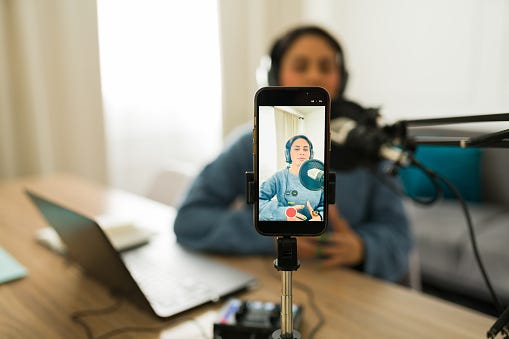
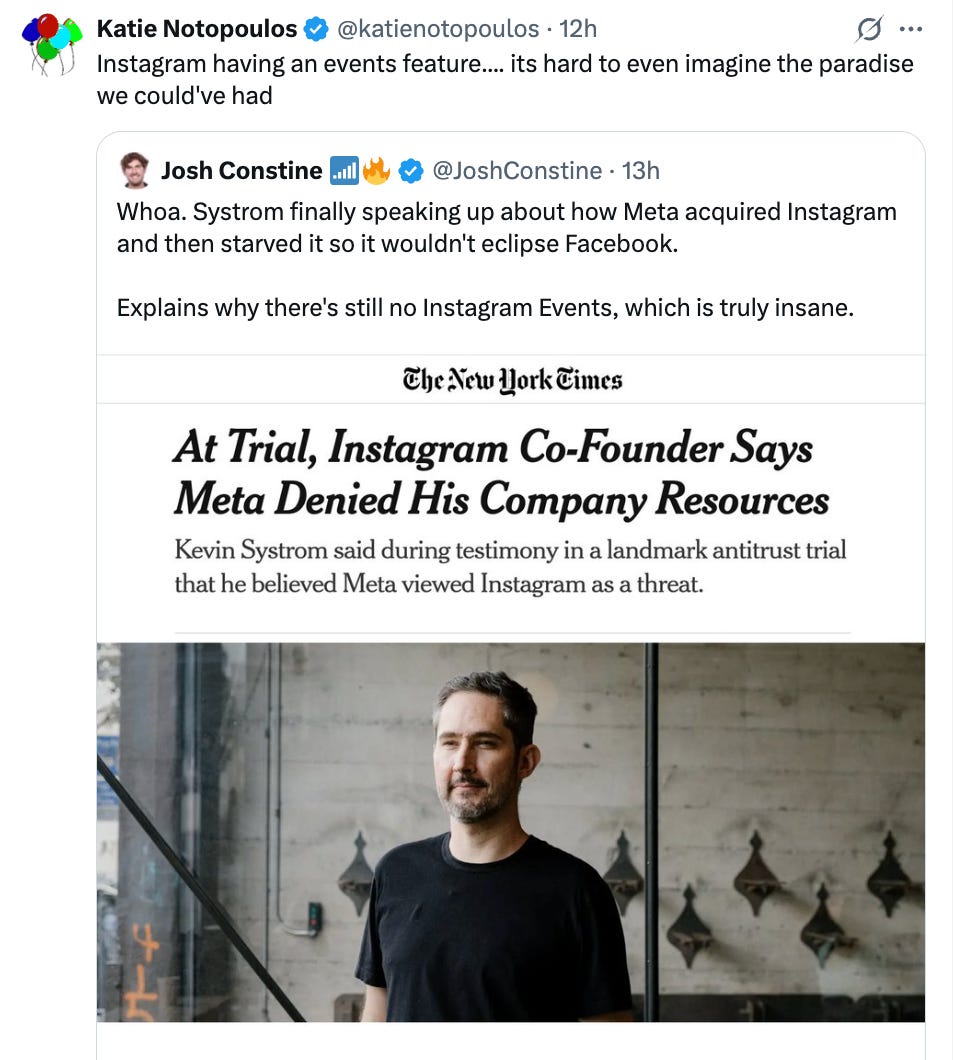
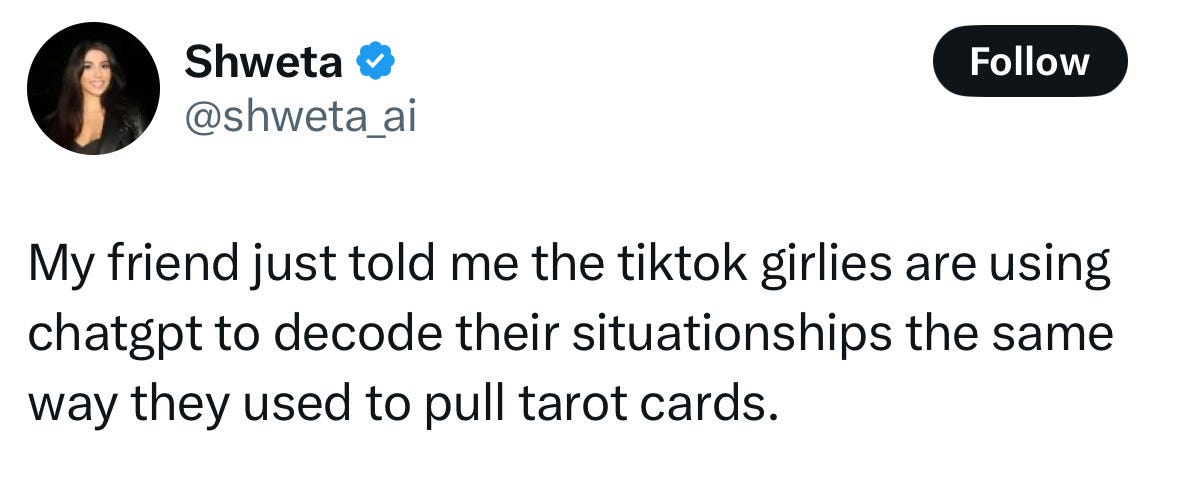
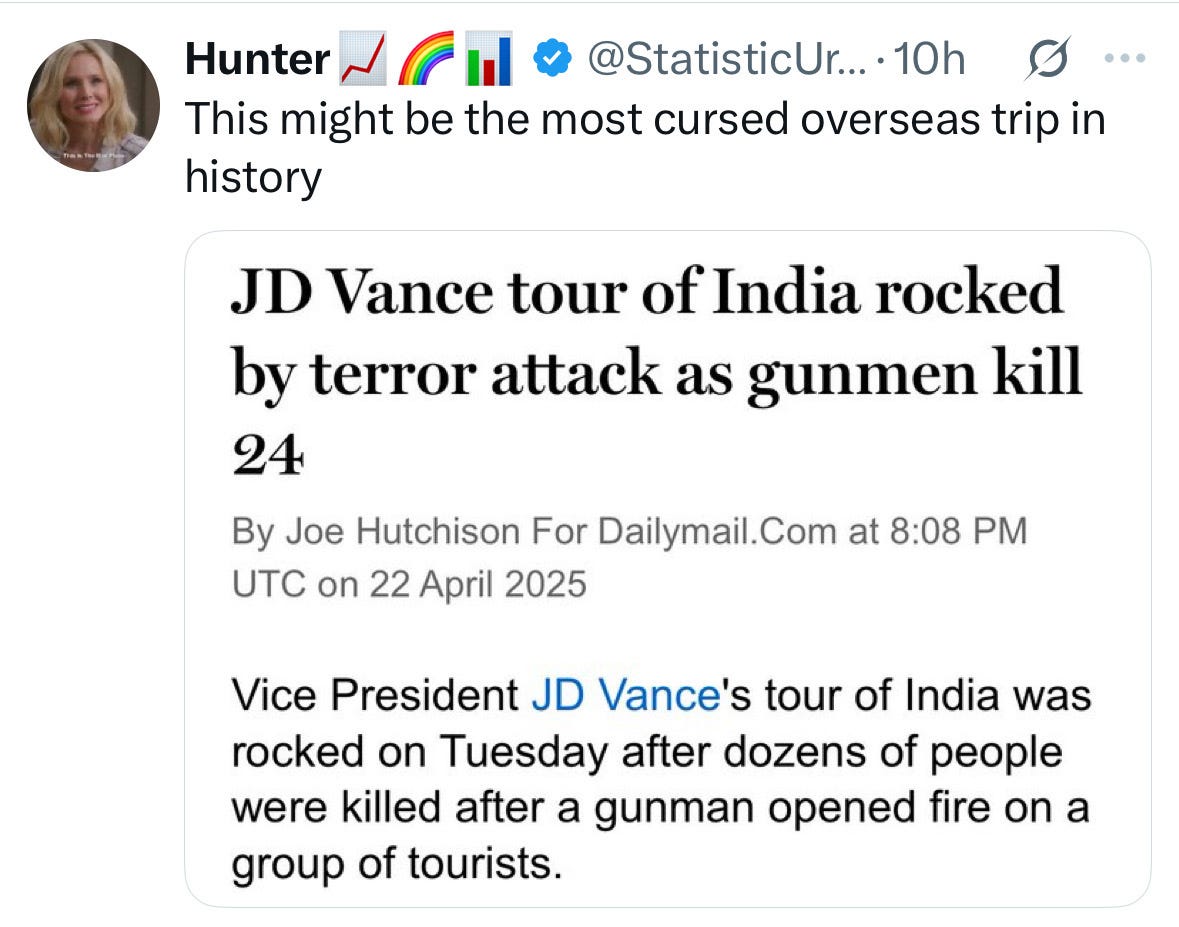
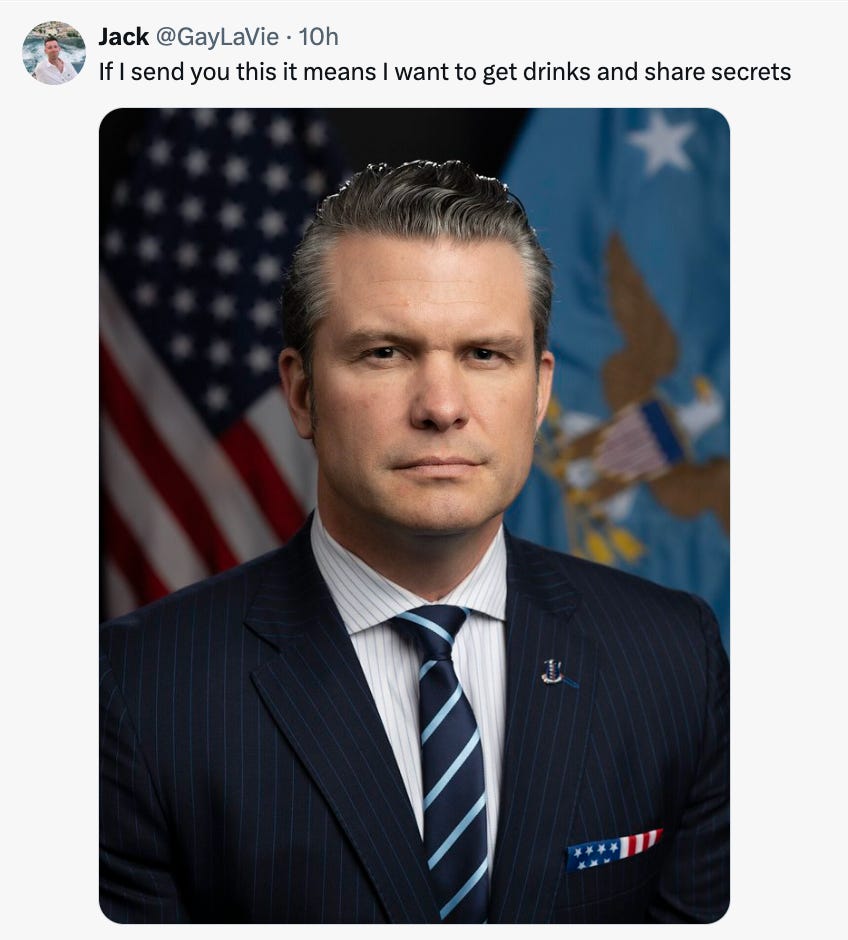
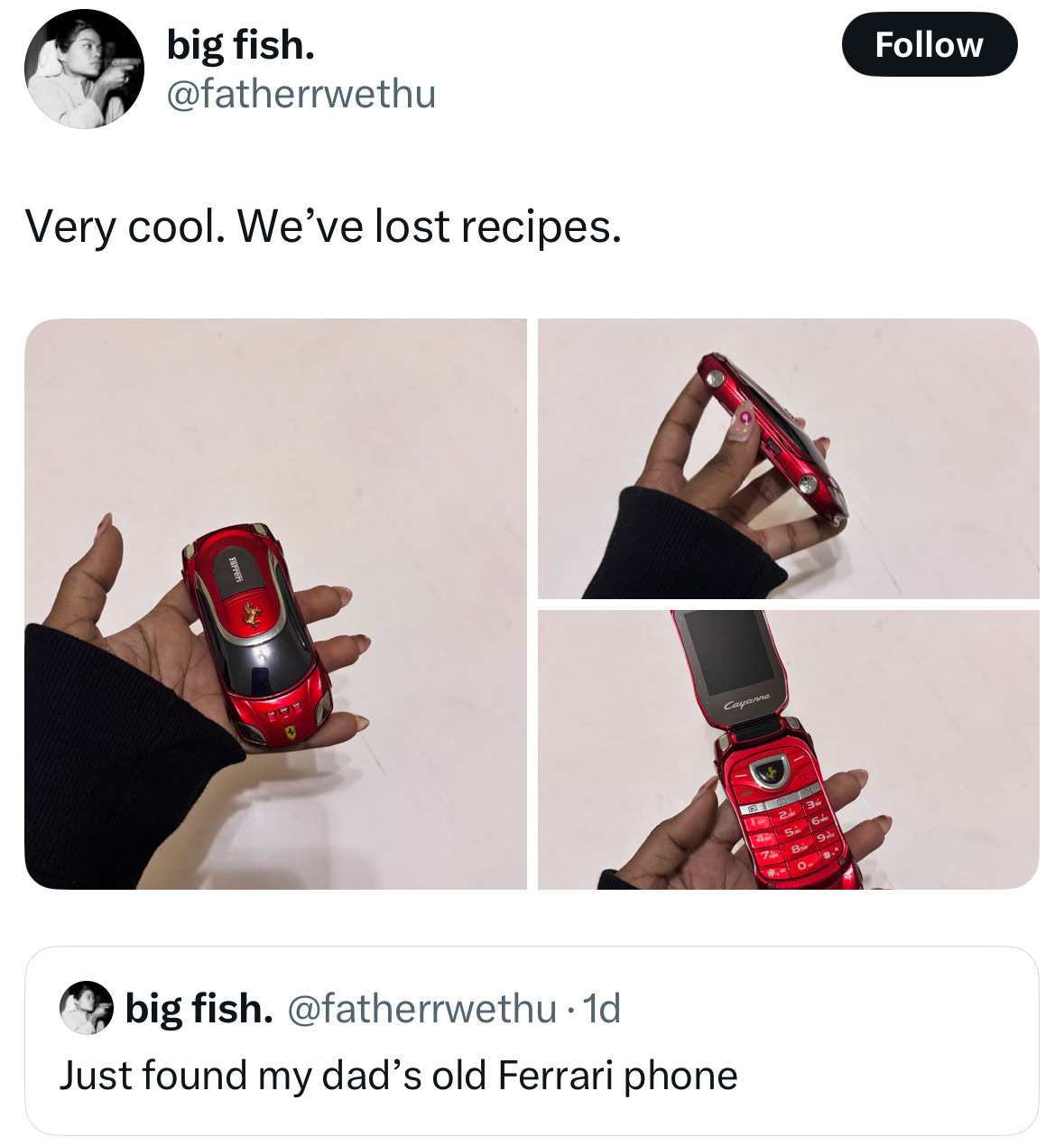
I wonder how much of girls/women not pursuing content creation might also have to do with women’s presence on social media being associated with “frivolous” things like fashion and beauty. There has to be an equal amount of interest between boys and girls, but when it comes to sending your child to a content creation camp, how many parents are refusing to send girls either out of protectiveness or to push them to something more “serious”?
The hate against women online is insane—especially when it’s perpetuated by other women. I always think about snark pages, which are ALWAYS about women creators.